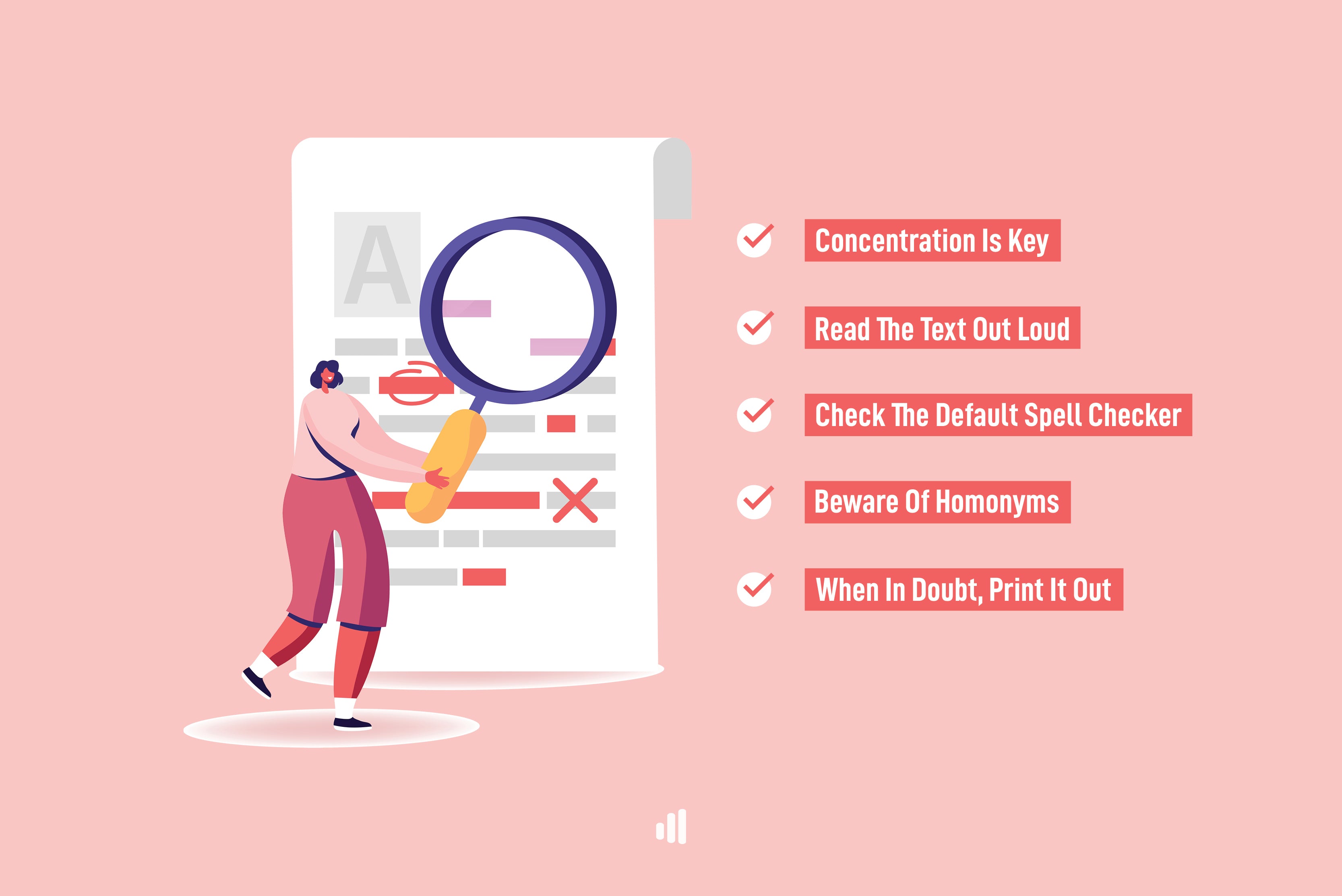Oddly enough, digital spellcheckers aren’t always foolproof. We share our best proofreading tips, tricks and insights in order to avoid looking like a rookie.
“Illegally parked cars will be fine” – as you can see, proofreading is essential when it comes to conveying the right message.
It’s important to note that there are distinct differences between editing and proofreading (yes, they are two separate concepts). Editing is the term we use to refer to a wide range of practices, including restructuring whole documents to recasting sentences. Without realising, you could finish editing a body of text with a completely different tone or story. In contrast, proofreading is actually the final stage – everything is already in place, and you’re just looking for consistency of style and final errors.
We know that it isn’t necessarily the most riveting of tasks, so here are a few proofreading tips from the professionals to make the process a little bit easier for you.

Five Proofreading Tips From The Professionals
Concentration Is Key – Give yourself a fighting chance by making sure that your environment is a “work friendly” one – and that means no distractions. This translates to a quiet space, no television, radio or background noise, and certainly no phone pings. Get in the zone, and stay in the zone.
Read The Text Out Loud – Taking the time to read the work out loud can assist in spotting any grammatical errors, as well as any potential inconsistencies in the style of the text. If you spot any long sentences, make a note or mark them where you have to take a breath. It’s a sure-fire way of spotting a missing comma or punctuation point.
Check The Default Spell Checker – Most standard copies of Microsoft Word and Google Docs default to US English. While this is great if you’re working from the United States, it makes it tricky to write in a language that’s suitable for Australia or the United Kingdom. This setting is usually found under the tools menu and then Language.
Beware Of Homonyms – Homonyms are words that share almost the same spelling or pronunciation, but have two different meanings. Common errors include “accept” and “except”, and “complement” and “compliment”. More often than not, it’s usually one single letter that skews the intended message.
When In Doubt, Print It Out – We get it. Sometimes reading on a digital screen just isn’t the same as reading from physical paper. If your daily screen time dosage is maxed out, don’t be afraid to print the body of text and get busy proofing with the nearest pen or highlighter. You can always return to the digital copy later, and this method might actually be quicker for you.

Bonus Points
When it comes to understanding the do’s and don’ts of the written word, the value of a strong command over the English language cannot be understated. The more you read, the better writer and proof-reader you will become. Taking the time to read more will help you to:
- Develop a wider vocabulary
- Understand different text structures
- Gain exposure to writing tones that you like (and ones that you don’t)
Strong writing skills will benefit you in a huge variety of circumstances that are a part of your day to day life – nobody’s asking you to write the next best seller, nor are we telling you to enrol in an English Literature degree.
In contrast, consider the fact that developing strong writing and proofreading skills will improve the way that you construct work emails, complete forms and applications, write those snappy Facebook and Instagram captions, and even the way that you communicate in your relationships.
If you’re a business owner, well developed writing skills are also generally required if you want to produce great content as a part of your overall marketing plan. However, if you lack the time, energy, budget or experience – then it might be time to delegate the task to a professional.
Thankfully, here at Content Hive producing top quality content is exactly what we do – so why not book in a free discovery call today to discuss how we can get your business buzzing online.


